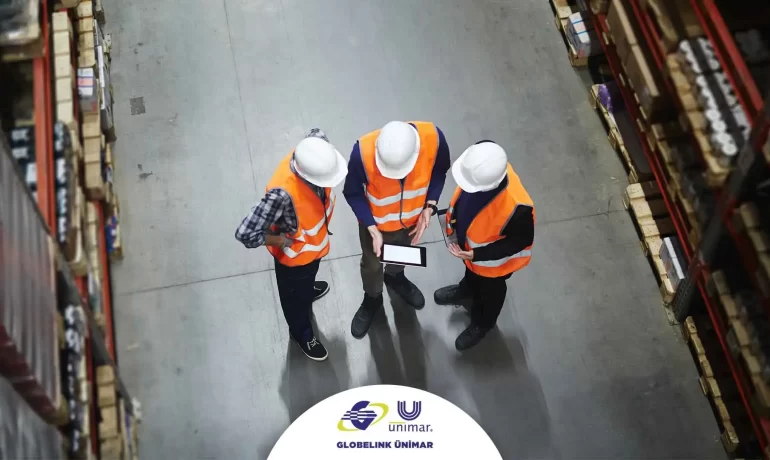
- July 13, 2022
- Blog
Turkish ports started the new year by increasing their cargo volume. The amount of cargo handled in the first quarter increased by 9.1 percent and amounted to 135 million 196 thousand tons. Only in March, the amount of cargo handled at the ports increased by 5.7 percent compared to the same period of the previous year and became 46 million 223 thousand tons. The increase in container handling in the first quarter was 4.6 percent and amounted to 3.2 million TEUs.
The amount of loading for export at the ports was 13 million 574 thousand tons in March; the amount of unloading for import was 20 million 607 thousand tons. Foreign trade shipments increased to 34 million 182 thousand tons. Transit cargo shipments increased by 7.5 percent to 6 million 671 thousand tons while the amount of cargo carried in cabotage increased by 12.4 percent with 5 million 370 thousand tons.
On a container basis, we see that only export and transit freights increased in the first quarter. Import and cabotage freights decreased. The growth rate of transit freight has been very high in recent years, but there has been a serious decrease in the recent period. There is an environment of insecurity in the markets. The insecurity that has existed since the beginning of the 2000s was revealed by the pandemic. It got worse with the Russia-Ukraine war.
On the other hand, we have entered a period in which very long supply chains are being questioned. In particular, we see that the structures that depend on China, make full-time production, and work with a single supplier from China are broken. This insecurity in the Chinese market also causes a decrease in long-term contracts. Conditions are currently quite favorable for Turkey.
I predict that a positive atmosphere will blow again both in the global and in Turkey’s cargo volume in the second quarter. I think that demand will increase again and that the decrease in freight rates will have a positive effect on global inflation.
Turkey Should Strengthen Its Fleets
If Turkey wants to reach its export targets, it needs to offer the fleet and port capacity that will serve the increasing trade and fleet capacity in the world. Currently, there are around 90,000 merchant vessels in the world, of which 6,300 are container ships with a capacity of 25.5 million TEU. The shipyards have orders for 6.5 million TEUs to join the fleet in the next two years. Turkey needs to strengthen its fleets and become a carrier country.
I believe that the issue of capacity should be among the issues that need to be discussed the most in Turkey. Especially identifying bottlenecks is the most important point. A bottleneck that will occur will directly affect Turkey’s foreign trade.
There is No Homogeneous Structure in Port Capacities
When we look at the total capacity of Turkey, we see that although there is no problem in the current situation, bottlenecks emerge in some regions according to the freight types. We foresee that capacity problems will arise in some regions of Turkey in about five years because there is no homogeneous structure here. Therefore, the development plans of the regions and the capacities that will respond to the input needs of the industry in the back area need to be created. Otherwise, our exports will face serious obstacles.
There is a Significant Opportunity for Turkey
However, we have a very convenient location for the integration of sea and railway. Turkey also needs to strengthen its railway infrastructure, integration and investments very quickly. Our country, which is located on the middle corridor, is a little late for the Baku-Tiflis-Kars railway, which became active at the end of 2019. Because, during the 10-year construction period of this line, we see that the northern corridors have taken a serious leap forward. The strength of the line results from the fact that it can go as far as Poland in 12 days as a transit. The increase in container freights and the fact that the cargoes that will come through Russia are not wanted by the countries have greatly increased the attractiveness of this place. For this reason, the railway infrastructure of the line needs to be improved as quickly as possible. I think that if the necessary actions are taken, it will be a very significant incentive for our production power. Trains passing through Turkey, even transit, will give us this advantage. We must make use of the country’s economy of scale advantage. When you solve the transportation infrastructure, you provide economies of scale.
The environment of uncertainty in the world is a very significant opportunity for Turkey. This opportunity needs to be used with quick decisions to be made. If necessary actions are taken, we will gain a very important place, especially in short supply chains.
Artificial Intelligence is Both Changing and Transforming
Today, we can see the clues that we will
The Future of the Cargo Market is Shaped by e-commerce
The e-commerce industry has been growing rapidly since the



